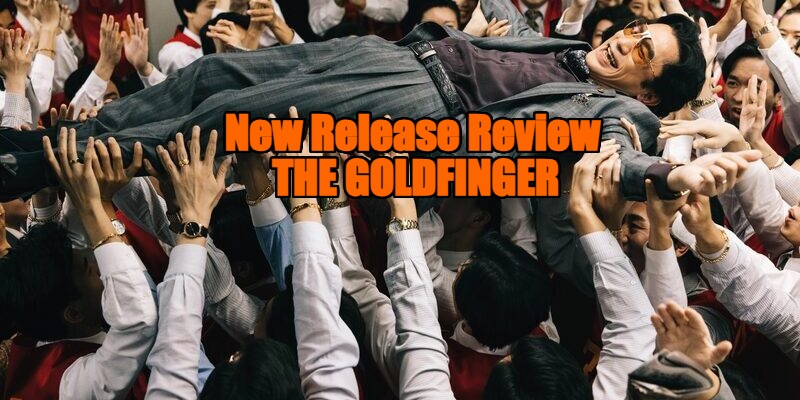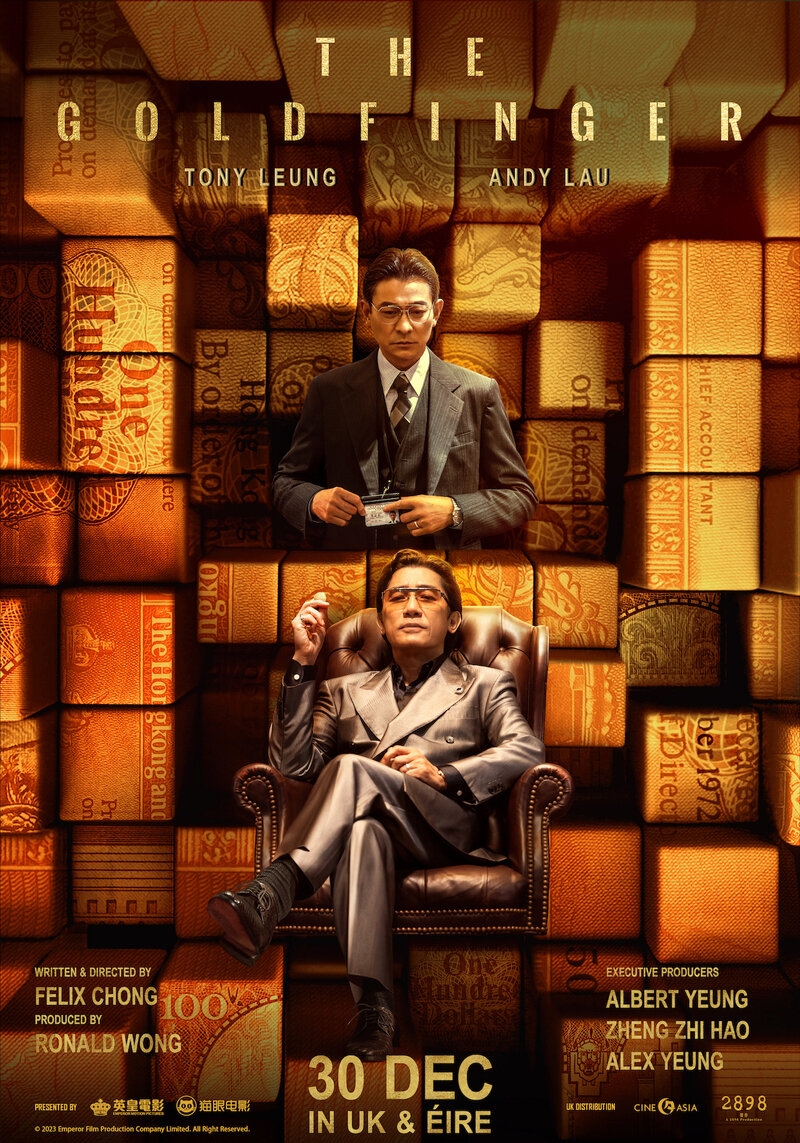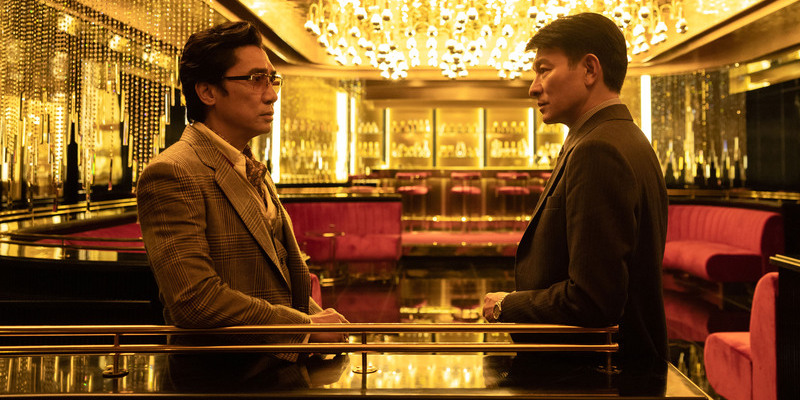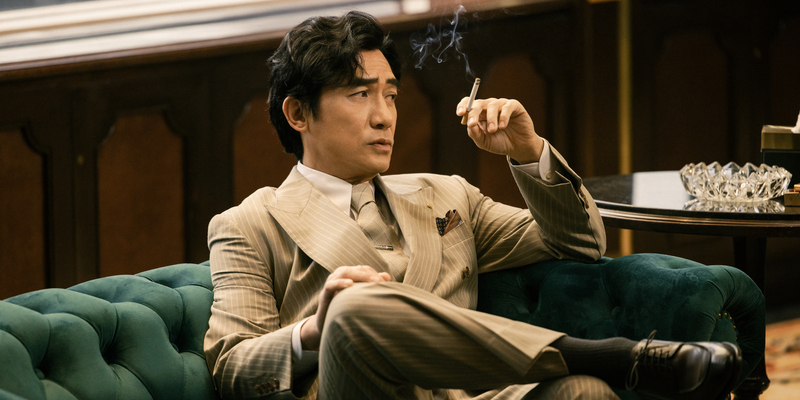
The chairman of a company becomes the subject of a lengthy investigation
by an anti-corruption officer.
Review by
Benjamin Poole
Directed by: Felix Chong
Starring: Tony Leung, Andy Lau, Charlene Choi, Simon Yam,
Alex Fong, Catherine Chau

Destabilising to think that no matter how hard you work, how prudently
you invest your money or how carefully you save; somewhere in a
boardroom far beyond your circumstance, upon stock exchange trading
floors, or via the MPC, your financial fate is being decided right now
by figures you've never met, who are deploying your meagre capital in
the service of wealth and influence which you will never ever experience
(or even, I'll be honest, fully understand). An engine propelled by its
own abstract locomotion of debt and loan and interest: always more,
more, more. Mad to think that UK money isn't even literal money but is
instead a printed, empty pledge "to pay the bearer on demand" some gold:
yeah, alright! Market Capitalism: the biggest confidence game of all
time.

Somewhat disingenuously billed as an action/thriller,
Felix Chong's The Goldfinger is set in the 1980s
(when money first came into existence) and is stringently based upon the
criminal George Tan, his scandalous Carrian Group, and the subsequent
bankruptcy of said financial organisation predicated upon its capital
transpiring to be "nothing more than loans from banking institutions."
The effect on the Chinese economy was notable.
From the writer of Infernal Affairs and featuring two
stars of the franchise, Tony Leung and Andy Lau, one might
be primed for a bureaucratic thriller of two-steps-forward-one-back cat
and mousery with occasionally kinetic action sequences - a fair promise
to pay the bearer on demand, right? Unfortunately, viewing
The Goldfinger is as weirdly inert as watching the Ftse
100 index - a repetitive and vaguely impenetrable experience.

The Goldfinger certainly opens with promise. Hundreds of
police officers are seen rioting against the ICAC who are in the process
of clearing up corruption within the law, in a tableaux involving
hundreds of extras within a Hong Kong street. This sequence is neatly
congruous with The Goldfinger's themes, not only in terms of setting up notions of shifty
institutions (irl the ICAC are a questionable body) and blurred
moralities, but also in the sense of spectacle evoked: budgeted at
HK$350 million, The Goldfinger is one of the most
expensive Chinese films ever made. You wonder if investors will be
pleased by the use of their money...
The ensuing plot involves ICAC member Lau Kai-yuen (Lau), pursuing
kingpin Tony Ching (Leung), following a stock market crash. We cut back
to Tony's rags-to-riches trajectory, his bold investments in real estate
and his perfidious interactions with the stock market via his
multi-million outfit, the "Carmen" group. This is related in lux
mise-en-scenes of utterly gorgeous suits, cliche signifiers of wealth
(cigars, cocktails) and exclusive nightclubs. Nonetheless, the whole
thing feels so completely joyless, on both sides. Take
Goodfellas (an obvious touchstone, I know, but the
Scorsese dynamic is all but acknowledged by Chong): in that tale of
corruption we feel the pull and glamour of crime, that illicit power,
even while decrying it (we have our coke and snort it, etc). In
contrast, The Goldfinger methodically depicts the process
of some crooks getting richer via various brash confidence tricks. Do we
care if they're stopped? Only from a dimly recalled moral perspective, I
suppose, rather than investment in Lau Kai-yuen's character. And, from
the other side, the lads never seem that thrillingly debauched, either.
I'd imagine you got up to worse over Christmas, you massive caner, you!

Fans of Infernal Affairs will be especially disappointed
at this follow-up's relative lack of stakes and challenged moral
positioning. In The Goldfinger, Chong seems to have lost his Midas touch.

The Goldfinger is in UK/ROI
cinemas from January 5th.

